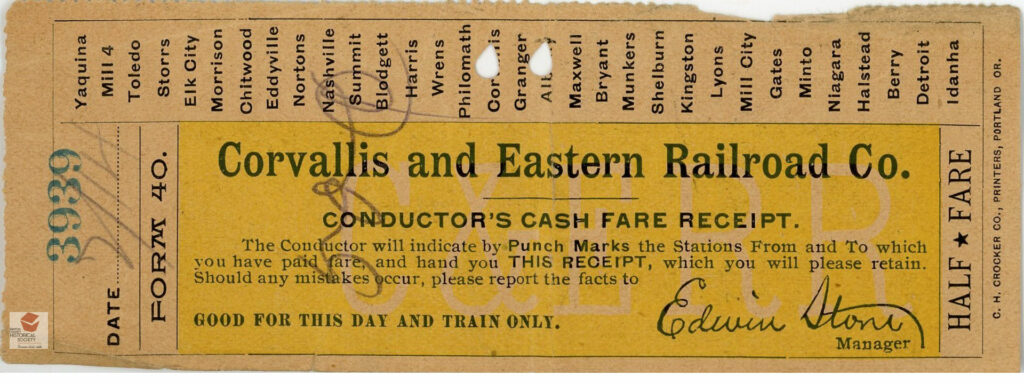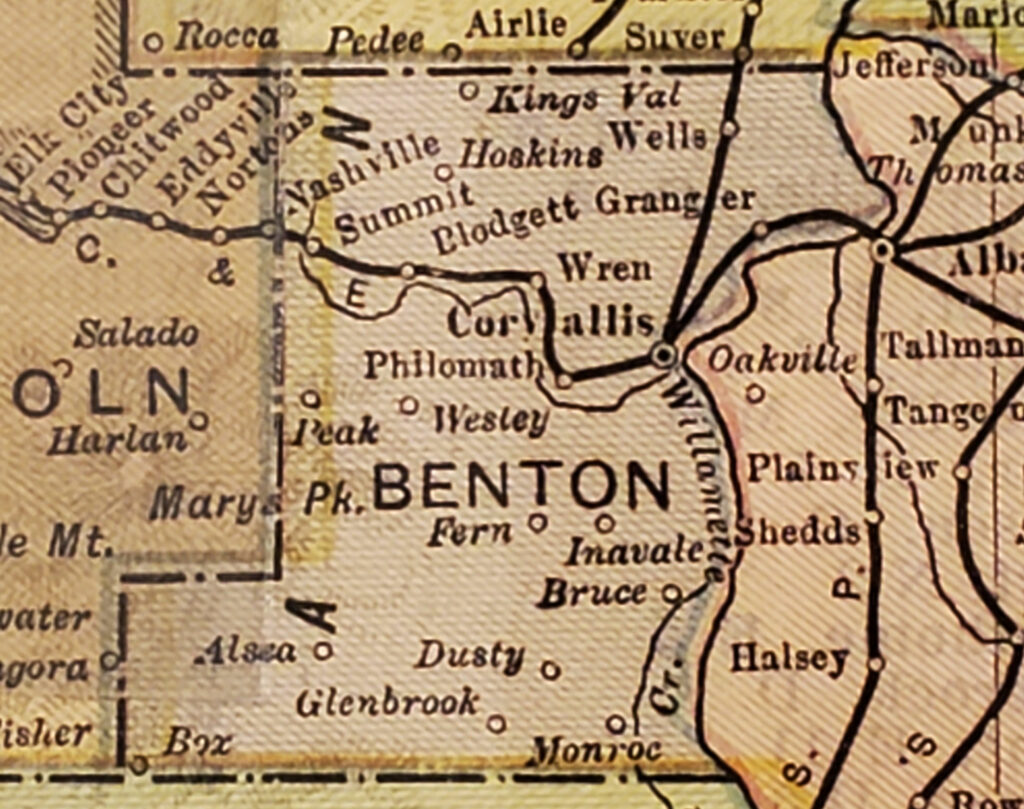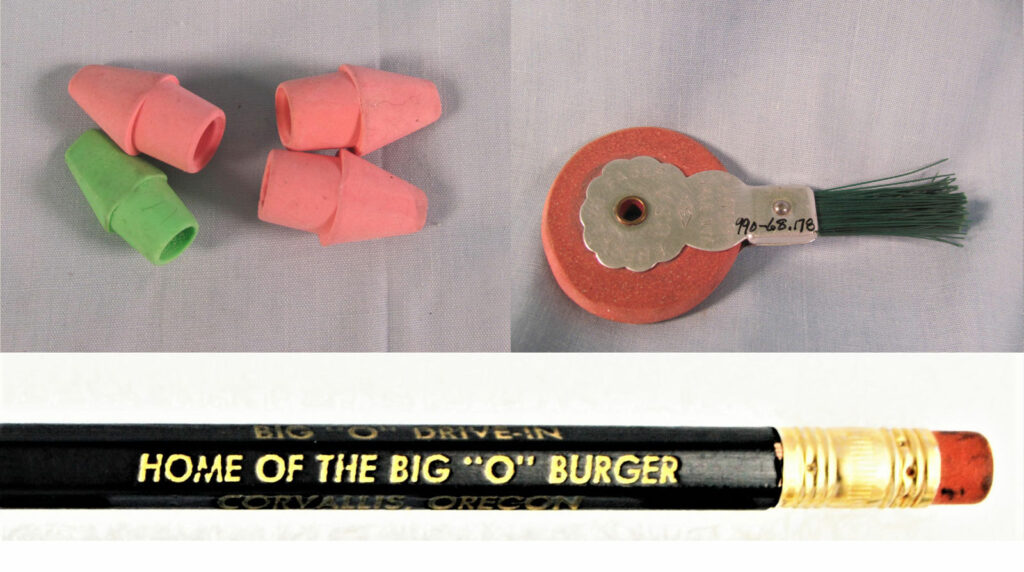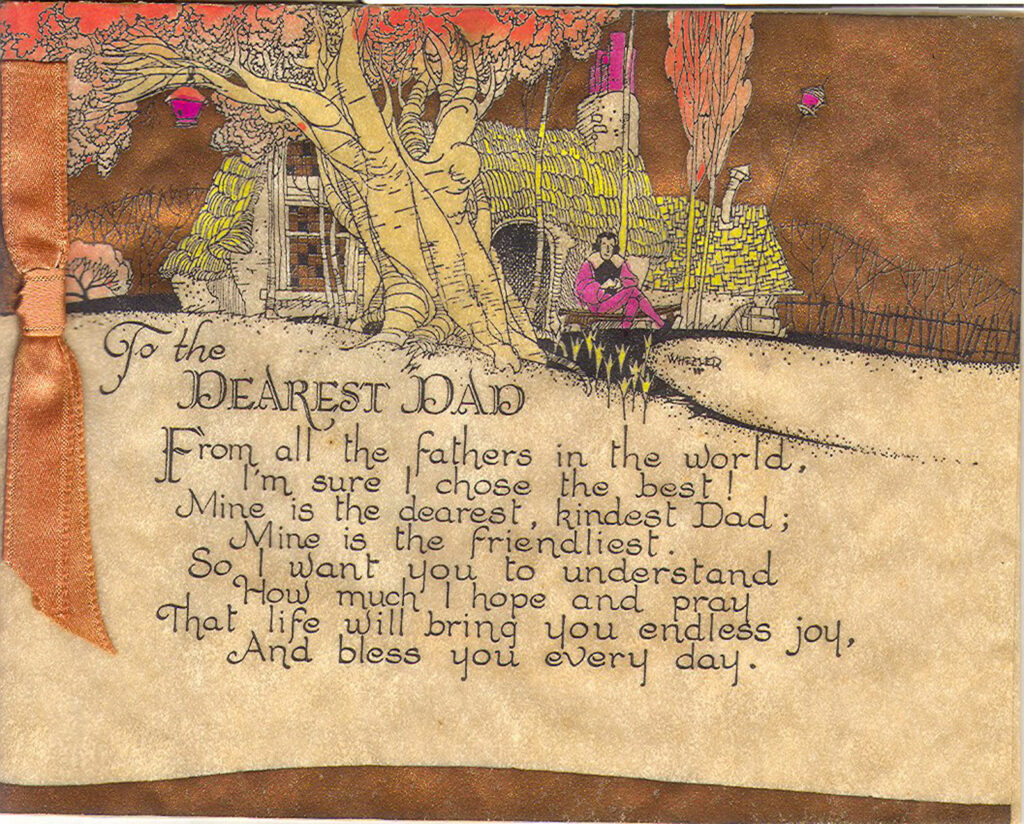This post continues selections from the 2001 interview with Bill Dixon. Dixon, who was born in 1927, was the son of Virgil and Martie Plunkett Dixon, the grandson of Henry Plunkett and the great grandson of Ashna and James Plunkett. Ashna was thought to be the first white child born in Kings Valley (in 1847). Dixon spent part of each summer at his grandparent’s farm and moved there in 1939 after his parents divorced. He was 12 or 13 at the time. That property is now Beazell Memorial Forest.
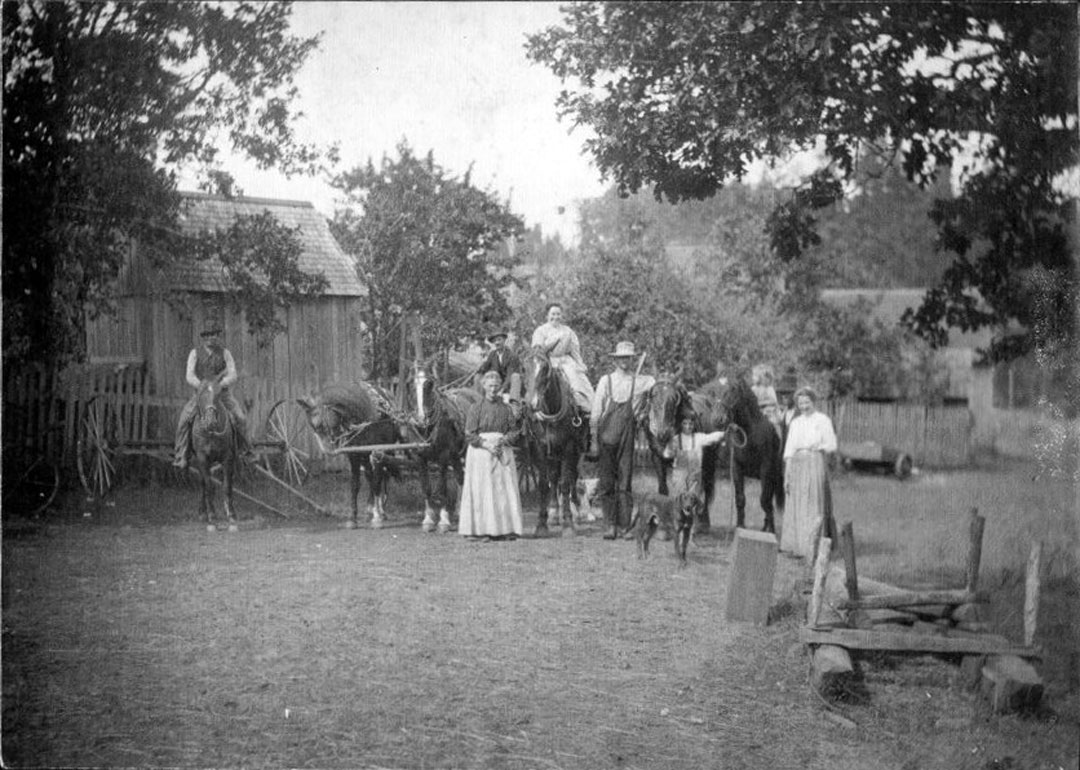
“Grandad never did really work outside anyplace…. of course, back in those days it didn’t take that much money. And they learned to live pretty frugal…. But by having the goats and the sheep, selling lambs and mohair and wool, why, and then they liked and butchered their own meat, pigs. They had say, 3 or 4 pigs. They’d always butcher one for themselves; sell the rest of them, you know. So that’s the way they lived and they’s the way they got by. And Grandad sold a little timber up there off his land, off and on, so that kept them going.”
“And we had an orchard there. In the fall we picked apples. Bushels and bushels of apples. We set them in this fruithouse we called it, ’cause that’s where grandma kept her canned food. Apples would keep for a long time there. Keep all winter…..”
“Grandad used to shoe his own horses. He’d never hire anybody. He’d do it himself…. he would buy the shoes. But,… he had to change them and he had a forge there. He could heat them up in a big old anvil and beat them to shape he wanted to fit the horse. So he did that.”
Dixon noted that “most of the farming was done with horses. There was no tractors to speak of.” Then “…the farmers out there, before they had combines, they bought a big thrashing machine…and I worked on that when I got big enough in the summertime. Why they all owned it, so…when the grain would start in, we’d start from one farmer and go to the next one. And that’s the way they got their grain thrashed and put away….”
Bill Dixon remembered that his grandfather Henry “kept hounds for a long time and they chased coyotes and red fox up in the mountains, ’cause they was killing their lambs and sheep and such…. I even helped them hunt coyotes and red fox when I was young. At that time there was a bounty on them, I forget what they cut off. Their tails, or something. And brought it into the courthouse and they were paid so many dollars bounty to get rid of them.”
Dixon told the story of how his grandfather acquired the shot gun he used for hunting.

“When Grandad was 15 years old, that would be 1898, he got on his horse and rode into Corvallis. He said there used to be mud holes in the road back then that would swallow him and his horse both. They we so bad… he had $15 in his pocket, he’d say. He bought him a shotgun, and back then they had to buy the brass shells to load them, cause they didn’t have the plastic casings and stuff. And back then they had to use these brass casings. And then whenever they shot it they had to be sure and save that because that’s what they had to reload again. And he bought the stuff, the powder, black powder, and primers to load his shells with. He bought all that and he went back home the same day and he said he went home with money in this pocket.”
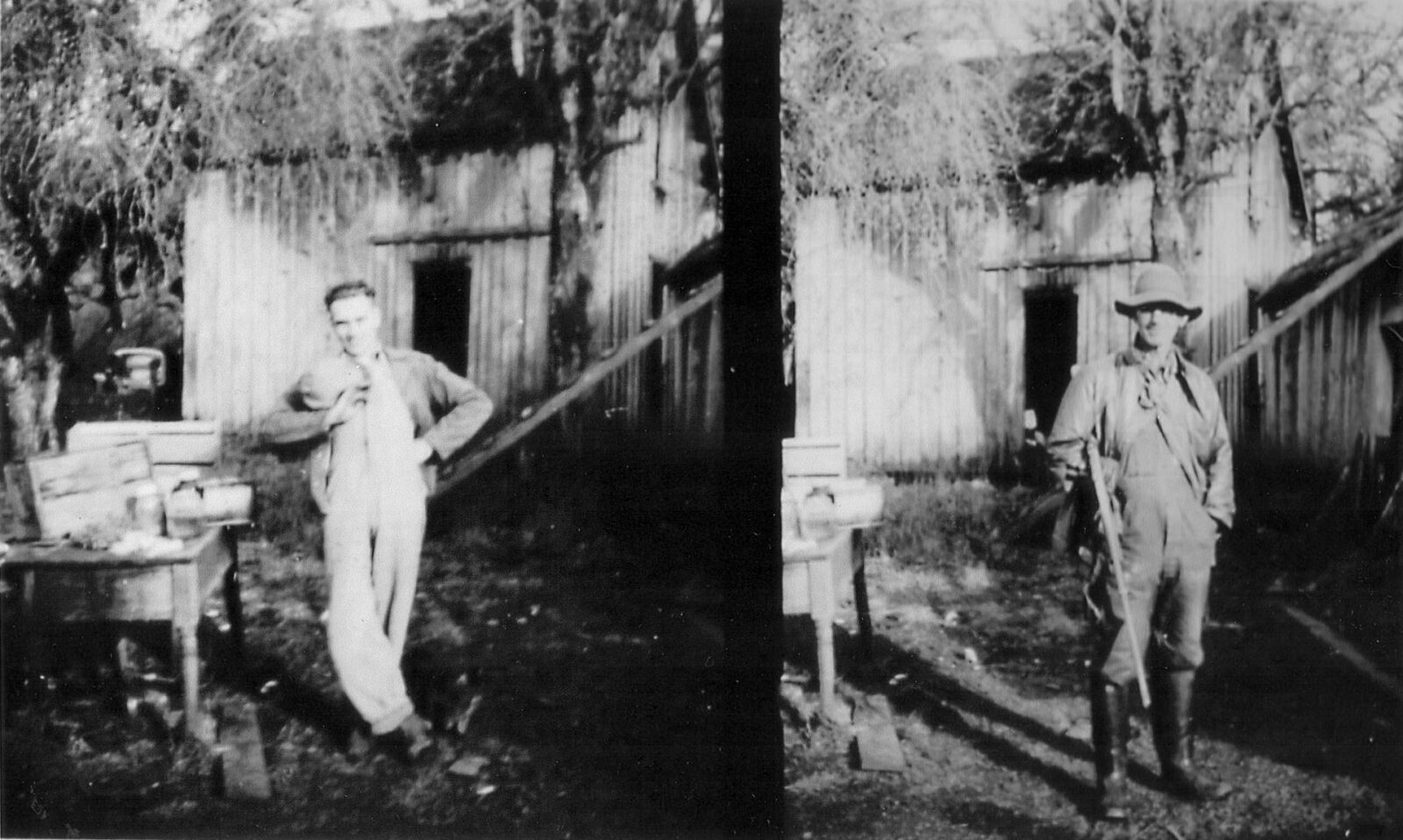
Henry Plunkett is on the right; Caryl Taylor (left) was Bill Dixon’s stepfather.
The building in the background of this photograph was located a short distance to the east of the Plunkett house. Bill Dixon noted that the building “was never lived in in my time. That was lived in way earlier. We used it for a shop. Grandad had to build a workbench in there, but one room in that house still had my great grandma’s [Ashna’s] big loom. It took up the whole room…. Grandad said she made all their clothes on that. And she had a big huge spinning wheel upstairs in it and she took the wool from some of the sheep they had and made her yarn and made their clothes. She made all our clothes ’cause that’s the only place she had to get them.”
The house did not have running water. Dixon remembered that “We had a dug well just back of the house, just off the porch, that was probably 3-4 feet across or around. And we had a little roof and it was build up with a lid on it and a bucket and rope and a pulley. And you opened the lid and you dropped the bucket down in there and you pulled up your water. And that was our water all those years…almost ’till I went into the service [1945]. He continued, “…up in the old horse pasture there was a spring, and in the late 40’s there Granddad build a cement big tank. Oh it must have been 10-12 feet across and about 4 feet tall. And the spring was piped into that tank and he made a roof for it over that tank. And then there was a pipe; we buried a pipe down to the house and it was all gravity flow, no pumps. We finally got running water in the house.”
After serving in the Navy for 2 years, Bill Dixon spent a year in San Diego finishing high school. He returned to the farm until he married in 1948. He worked for a time at the sawmill in Wren but was out of work when the mill shut down. In April, he was hired at the Post Office and spent 35 years working there. He died in 2020.
